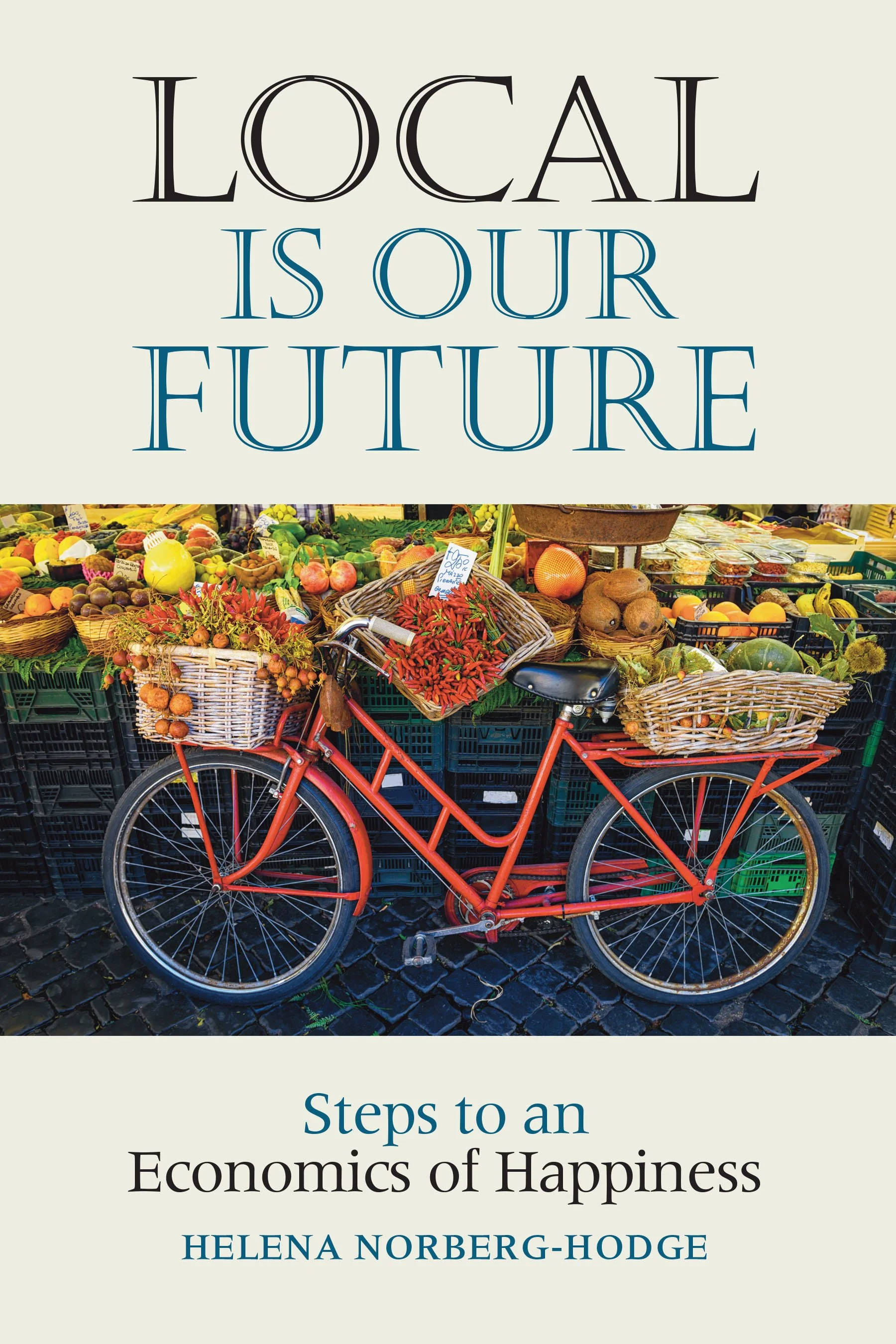Helena Norberg-Hodge
on Ancient Futures and the Localization Movement
"The story of Ladakh is our story, too. We used to have a more secure economy, self-respect, and peace. Human nature is not the problem. On the contrary, it is the inhuman scale of a techno-economic monoculture that has infiltrated and manipulated our desires and needs.”
Globalization has been presented as a way of bringing nations together. But what is actually its unfiltered, raw cost?
Helena Norberg-Hodge, a world-renowned author, linguist and film-maker, was the first “outsider” in modern times to master the Ladakhi language, helping locals find ways of enabling their culture to meet the modern world without sacrificing social, spiritual and ecological values. Initially intending a brief visit, she fell in love with the glorious Little Tibet that emanated a sense of “lightness and ease of being, a real joie de vivre”, became increasingly fascinated and decided to move there: “Although there was little money, you could not see the kind of poverty one sees all over the so-called ‘developing’ world today. They were tung-bos za-bos, or self-sufficient.”
Over time, ethnic and religious differences evolved into divisive political tools, bringing bitterness, tension, and unrest. When Ladakh was first opened to the outside world, media images that romanticized an urban consumer culture were used: “It made young people reject themselves and everything around - their food, clothing, language, and colour of their skin. It was terrible to witness how this dominant global consumer culture was creating self-hatred, violence and anger.”
Helena’s unique perspective as both an outsider and insider made crystal clear the connection between the economic changes brought by ‘development’. As the founder of Local Futures, a pioneer of the new economy movement, and the convenor of World Localization Day and the International Alliance for Localization, Helena is renewing ecological, social and spiritual wellbeing by strengthening communities and local economies worldwide. Her efforts sparked grassroots movements such as the International Forum On Globalization and the GEN - Global Ecovillage Network.
In her book and film, Ancient Futures, she challenges us to redefine what a healthy society means and find ways to carry centuries-old wisdom into our future. A must-needed reflection, as the dominant narrative of progress fails to capture the psychological costs.
Read Helena’s answers for Inspirators and watch her brilliant documentary, The Economics of Happiness, to discover how Ladakh's story mirrors your own.
Thank you, Helena, for being an Ancient Futures Pioneer!
#INSPIRATORS QUESTIONNAIRE
Name: Helena Norberg-Hodge
Company / Institution: Local Futures
Title: Founder
Website: www.localfutures.org
LinkedIn profile: https://www.linkedin.com/in/helena-norberg-hodge-1a0344307/
Country of origin: Sweden
Country you currently live in: UK/Australia
Your definition of Regeneration: I am concerned about using this term because it has been used by corporations. I think those of us working towards restoring health to human beings and the living world need to use more holistic language.
Main driver that keeps you going: My faith in nature and the essential goodness of humanity.
The trait you are most proud of in yourself: Compassion and sincerity.
The trait you most value in others: Compassion and sincerity.
Passions & little things that bring you joy: I’m passionate about sharing the big picture that can unite people, and I’m also passionate about supporting community food systems. Walking in and connecting deeply with nature brings me joy on a daily basis.
Getting news about the impact of our efforts, and hearing about the spiritual, human and ecological benefits also makes me happy daily!
The Inspirators who determined you to take the regenerative path: The radiantly happy and peaceful people of Ladakh (or "Little Tibet") took me on a path to promote a deep connection to community and nature as a way of healing ourselves and the world.
A starting point for companies or professionals that are beginning the regeneration journey: Change the language to promote genuinely systemic change.
Most used and abused clichés in sustainability that bother you:
"Sustainability"; "regeneration", "be the change"!
An honest piece of advice for young people who lose hope: Don’t be afraid to share your fears and unhappiness with others. Deeply connecting with others and nature can start a journey of immediate healing. It’s the disconnection that leaves you feeling frightened and depressed.
Books that had a great impact on you / Must-Reads for any regenerative professional:
Small is Beautiful by E. F. Schumacher
Movies / Documentaries you would watch all over again: The Biggest Little Farm.
Music that makes you (and your heart) sing: Chanting and singing simple songs in a group makes my heart sing!
Places you travelled to that left a mark on you: High mountains of the Alps and the Himalayas.
Your own quote that will inspire us:





